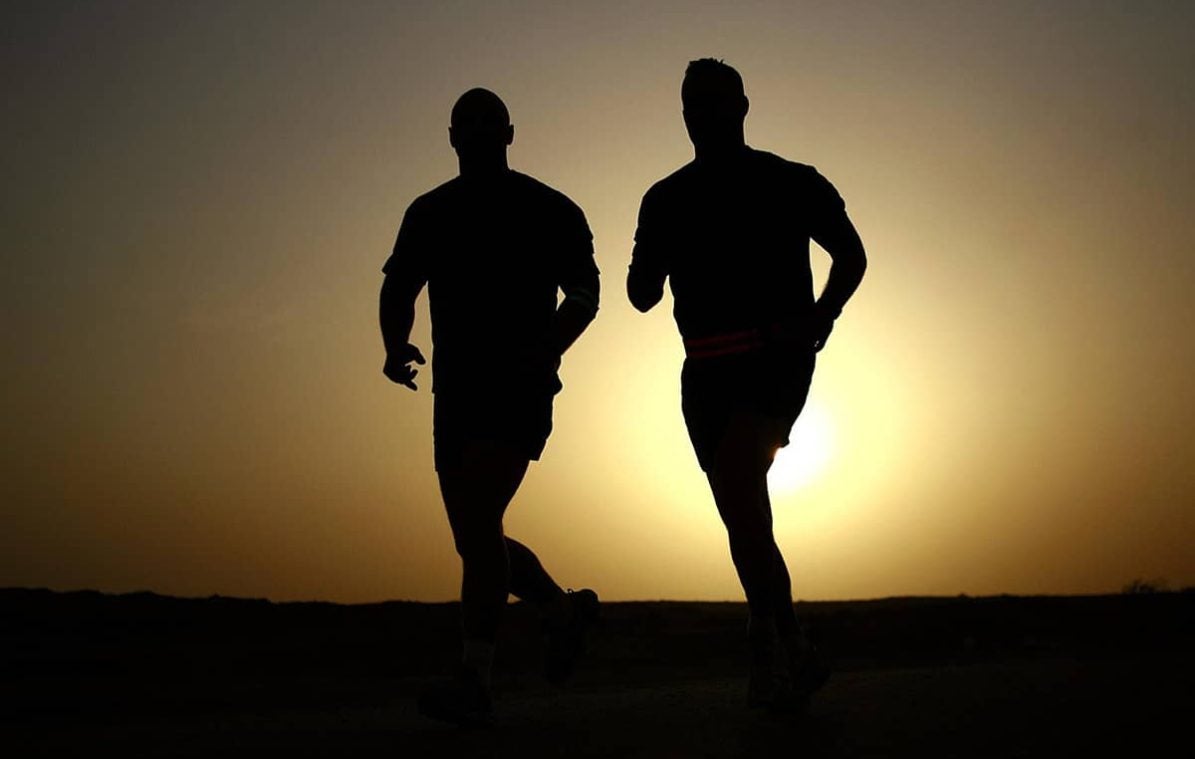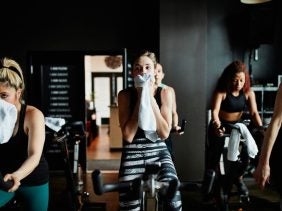Extreme Heat and Sport: Should You Participate in a Race in the Middle of a Heat Wave?
 © foodspring
© foodspring
There are few images that describe so well how heat can affect an athlete than that of British runner Callum Hawkins’ fainting spell at the 2018 Commonwealth Games in Queensland, Australia. Hawkins was leading the marathon, with a lead of more than two minutes, when he suddenly collapsed from heat stroke just 3 km from the finish line and was unable to finish the race.
Unfortunately, this is a situation that will occur more and more frequently due to rising temperatures due to global warming. Thus, thermometers reaching 30 ° and even 40 ° will become ever more common.
When there’s a heat wave right at the event you’ve been preparing for weeks, even months, you can’t help but feel even more pressure. So you wonder what the maximum temperature is that you can go out and participate in sports, and whether you should, perhaps, cancel your participation in the event.
First and foremost, you should not be among the so-called at-risk population, which includes all people with a medical condition that makes them more sensitive to heat. For other people, it is not so dangerous, and you can continue to play sports even if the thermometers reach 40 ° . In fact, there are many sporting events that are held in high temperatures.
If you’re determined to go for it, here are a few tips to keep in mind.
Lower your Expectations
Doing sports in hot weather makes you more tired, decreases the intensity and your recovery time will be longer. Your personal brand will also be affected in relation to your other careers.
What happens to our body when its temperature rises, though? “It all comes down to core temperature and its impact on the body,” says Professor Stephen Cheung, head of the Environmental Ergonomics Laboratory at Brock University in Canada, in a study .
When we run in high heat, the body’s core temperature rises from 37 ° -38 ° to 40 ° -41 ° and this “alters brain chemistry and cognitive function,” explains Professor Cheung. “This increase also changes the intestinal blood flow, increasing free radical damage” which makes you not only “feel bad because your temperature has gone up, but involves much more in terms of the changes our body undergoes.”
You’d be surprised, but the best way to combat these symptoms is to run more. The fitter you are, the better your body will adapt to the rising thermometer. You will have an improved sweat response to remove heat faster and also a greater sensitivity to sweating when your core temperature rises. Note also that improved aerobic capacity results in elevated plasma volume and cardiac output that will help minimize competition for blood distribution between the skin and muscles, as Professor Cheung explains.
Practical Advice
In short, you can find a way to do your sports test in high temperatures without dying in the attempt. Here we are going to give you some very practical tips that will surely help you in these days of extreme heat:
- Stay hydrated: Many studies warn us of the danger of dehydration. When you exercise in high temperatures, fluid loss increases. It is estimated that doing sport in hot weather causes you to lose between 2 and 4 kilos more fluid through sweating so drinking water or sports drinks is essential. Not only on the day of the sporting event but also in the days leading up to it.
- Heat acclimatization: A comprehensive scientific study “Heat stress in physical activity and sport” from the University of Connecticut states that “Heat acclimatization is a process that generally lasts 10 to 14 days, which induces many physiological changes that enhance a person’s ability to exercise in these environmental conditions”. So it’s a good idea to orient your body to the high temperatures you’ll be facing. While it may be tempting to train earlier in the day, or during the later hours when it’s cooler out, this can actually be counterproductive. Train a couple of days a week in the peak heat hours, this will get you used to feeling the heat and will also help you learn how your body reacts to working out in high temperatures. This way you can learn what you need to do in hot weather and you will suffer less.
- Watch your diet: Both energy bars and gels are two options that are at their best in the warmer months. They allow you to measure the right caloric intake without overdoing it and avoiding putting too much pressure on your digestive system. Before starting the test, eat easily digestible foods such as cereals or fruit. Once you have finished the test, it is best to refuel with carbohydrates such as a good plate of pasta or legumes.
- Mental preparation: Feeling in good spirits and being mentally prepared is always a great help. However, in this case, science also confirms it: believing in yourself plays an essential role in giving your best when doing sport in extreme temperatures.
- Don’t forget the basics: Keep in mind some basics (that we can all forget at times) such as wearing light, breathable clothing, wearing a hat and sunglasses, and sunscreen. Bringing something to drink or some kind of energy gel is not a bad idea either.
- Learn when to quit: Everyone, even the fittest, can suffer from high temperatures. No one likes to drop out of a workout, let alone a race or an event you’ve been preparing for weeks. But any athlete, no matter what level they are, can get into trouble if they stop listening to their body and insist on continuing when it’s not possible. Feeling dizzy, having a headache, feeling confused or disoriented, breathing too fast, rapid heartbeat, vomiting or very clammy skin can be clear signs of heat exhaustion. We all want to push ourselves to the limit, regardless of what the external conditions are, but risking illness or injury is not the right decision at all.
Learn more about this topic at foodspring:
- Ultramarathon? Easier than You Think!
- Get Ready for the Start with Our 12-week Marathon Training Plan.
Sources for this article
We at foodspring use only high-quality sources, including peer-reviewed studies, to support the facts within our articles. Read our editorial policy to learn more about how we fact-check and keep our content accurate, reliable, and trustworthy.






















